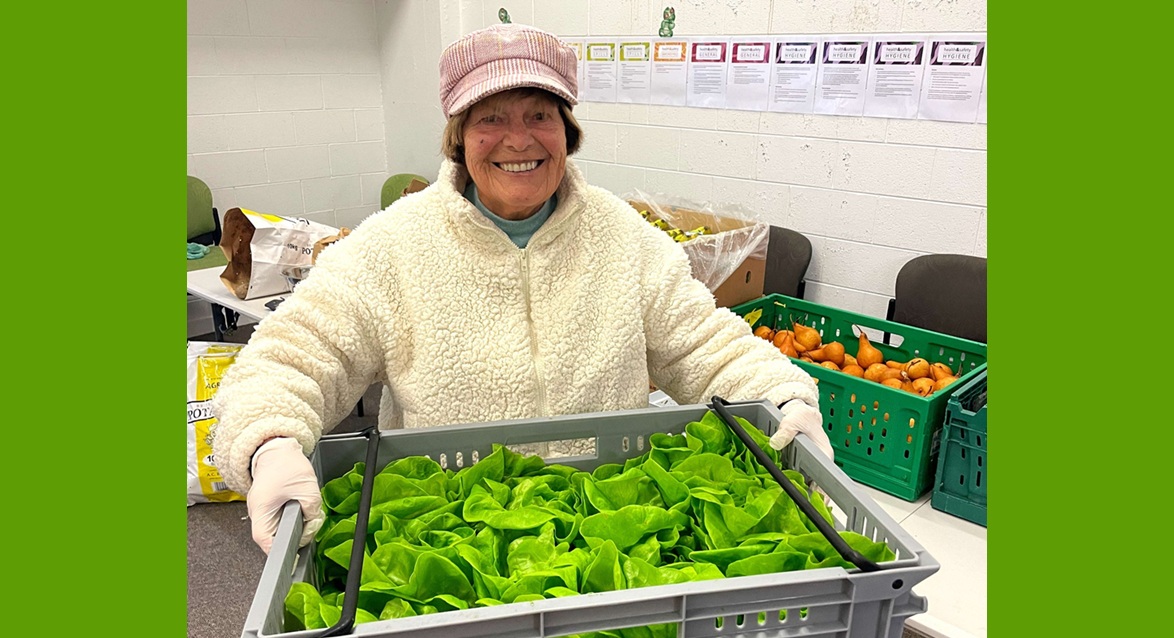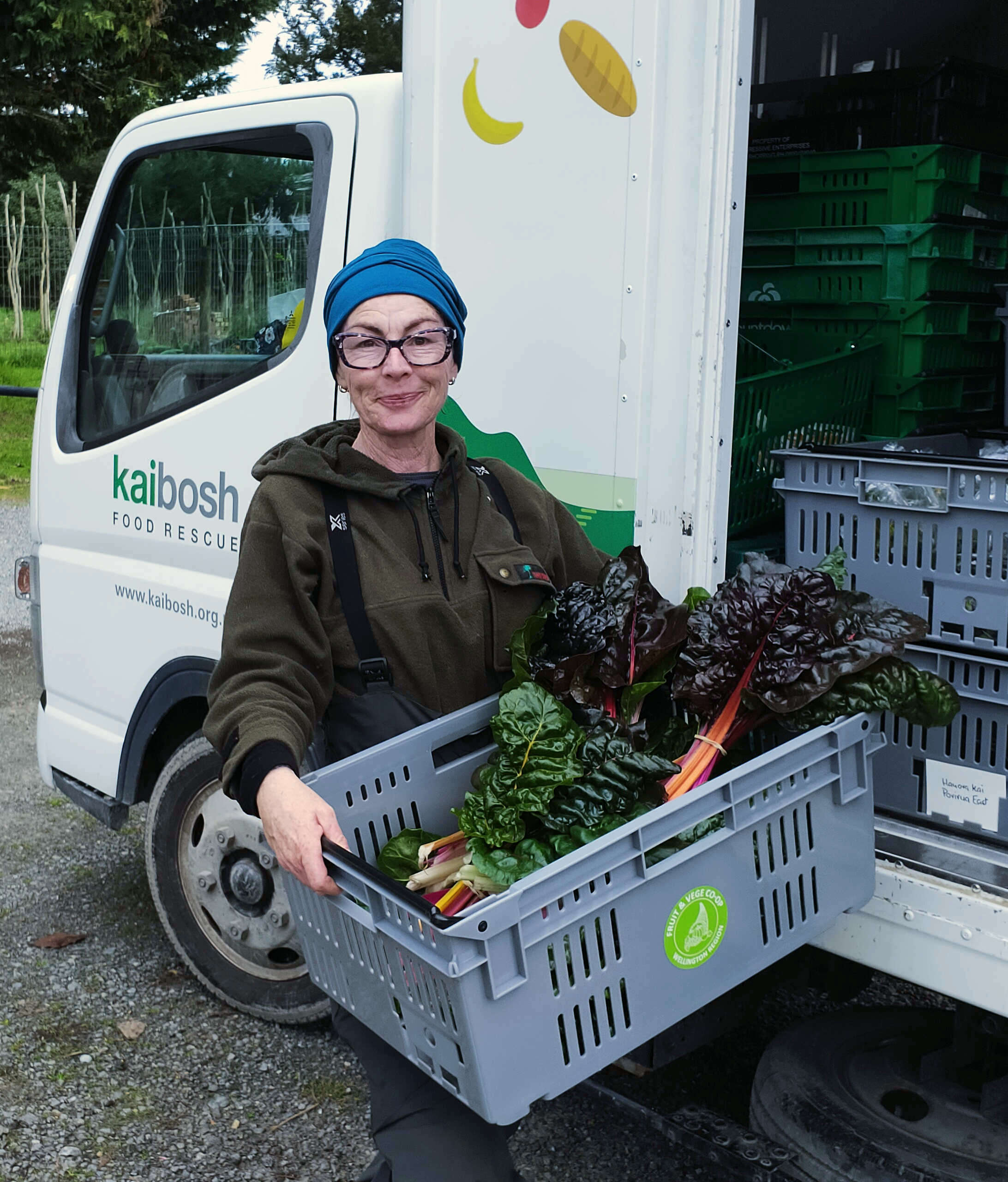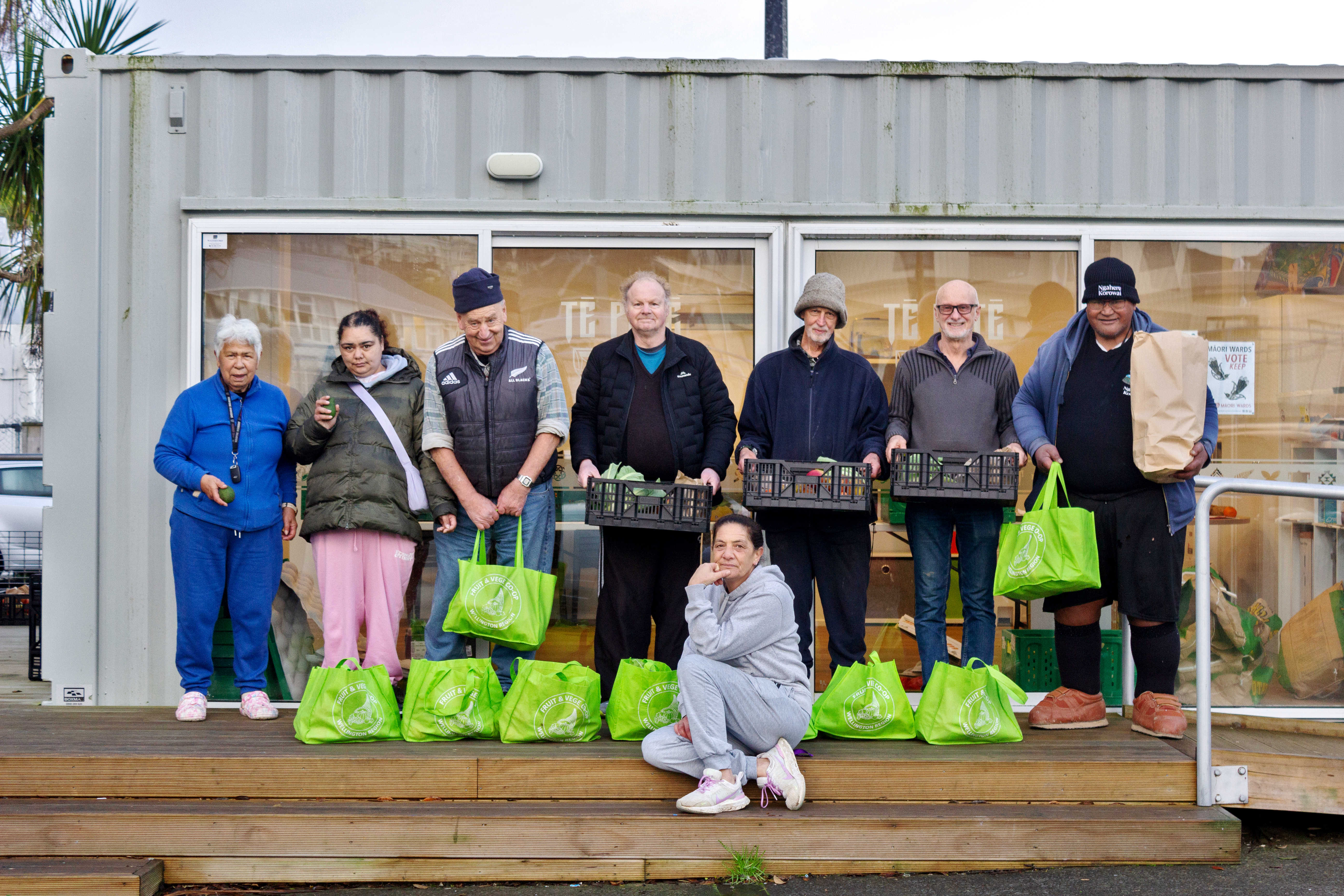
Salad leaves from Te Horo, silverbeet from Newtown, eggs from Ōtaki … a new initiative developed by Wellington Region Fruit and Vege Coops is connecting Wellington communities with local growers.
Local Harvest is a three-month pilot project that gives people easy access to affordable, regionally grown produce while also supporting small-scale local growers and building a stronger, more sustainable local food system.
Local Harvest uses a new online platform, Coshop, where people can place weekly orders for fresh produce from growers in Kāpiti and Wellington. They include Kai Ora Initiative (Te Horo), Waikōkopu Grove & Orchard (Kuku), Prana Greens (Te Horo) and KaiCycle (Newtown).

Drivers for food-rescue organisation Kaibosh pick up the orders as part of their regular routes and deliver them to Co-op packing hubs in Cannons Creek, Brooklyn, Paraparaumu and Newtown where volunteers pack the orders for pick-up by Co-op members.
We run Wellington Region Fruit & Vege Co-ops in partnership with Health New Zealand Te Whatu Ora.
Co-ops coordinator, Cory Hope, says the project responds to a key challenge identified by the recent Wellington Regional Food System Plan which is that while local food production exists it can be hard for people to access it.
“There’s a real need to boost regional food resilience, but that only works if we support local growers by making it easy for people to buy their produce,” he says. “Local Harvest removes some of the biggest barriers – distribution and also price – while keeping things simple and community-led.”
%2520with%2520Local%2520Harvest%2520%2520packs%2520ready%2520for%2520collection.jpeg)
Local Harvest is one of two pilot projects currently being run to support the objectives of the Regional Food System Plan which are to strengthen food security, equity and resilience. The plan was co-designed by Te Whatu Ora, the community and iwi and was funded by the Wellington Regional Leadership Committee.
Cory says using Kaibosh drivers addresses the issue of distribution, as the drivers pick up produce orders from local growers while travelling past on their regular routes between Kāpiti and Wellington. He says the key to keeping Local Harvest produce affordable is the Co-ops’ volunteer model which sees community members gather weekly to pack their traditional $15 produce packs.
“Because we already have this amazing network of volunteerswe’re able to keep prices low and get more fresh produce into each pack.”
Local Harvest is already showing strong uptake, with $2500 worth of locally grown produce ordered last week. Orders can be placed through Coshop between Saturday afternoon and 8pm on Monday, with produce available for pick-up from Thursday morning.

The hope is that after the pilot ends the model can expand to more co-op hubs, giving more existing co-op members the option to select their own produce or add extras to their weekly pack.
Cory says that longer-term, the aim is to support even more community-based local growers.
“In future this could include māra kai, community gardens and even backyard producers so we can help more whānau across our region to access fresh, nourishing kai grown close to home.”
* Local Harvest is funded by a grant from the Lotteries Grants Board.